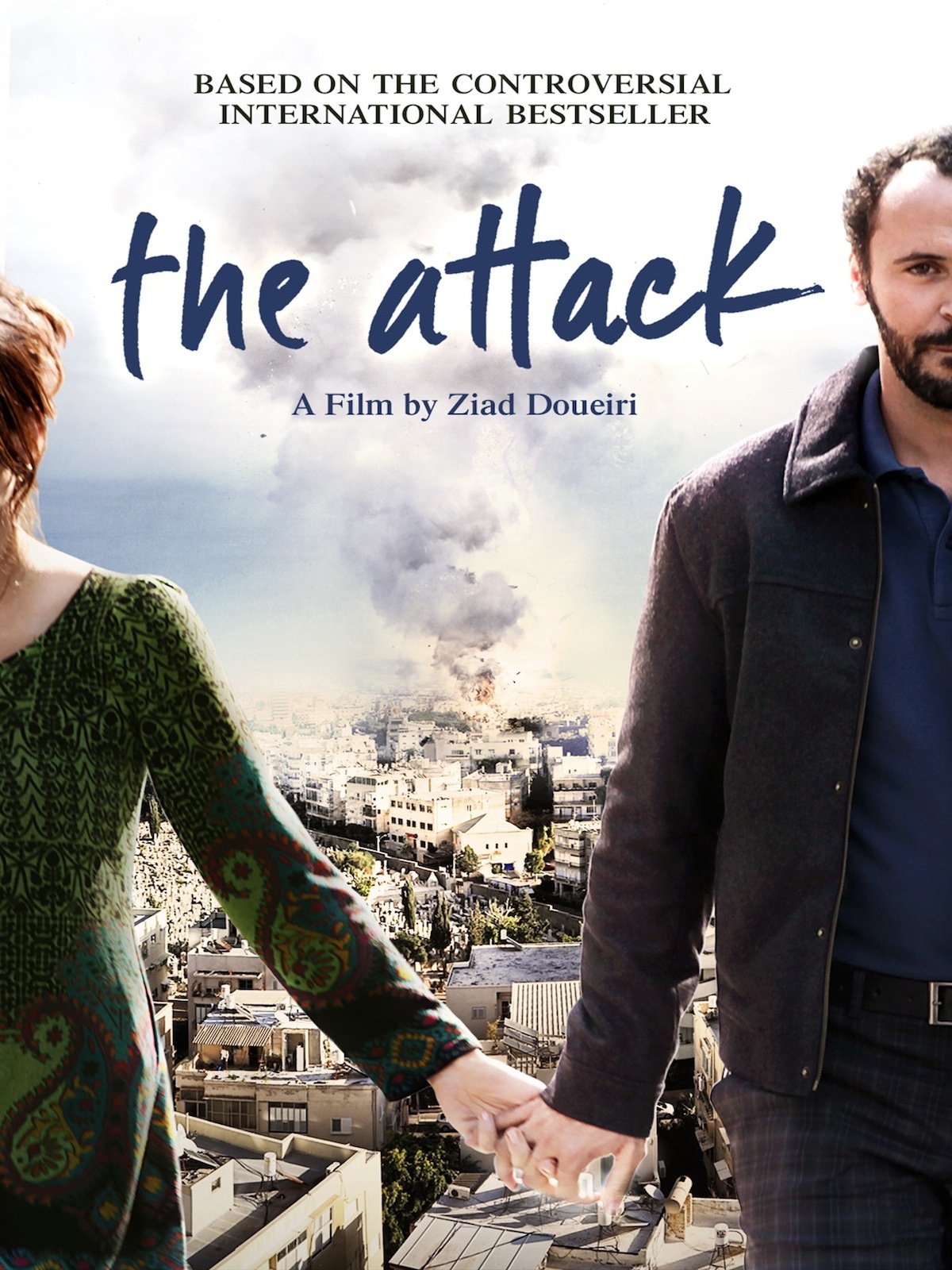
The Attack (2012)
Origin: Lebanon / France / Qatar / Belgiium | Fiction | Director: Ziad Doueiri | 102 minutes
The Attack (2012)
Dir. Ziad Doueiri Lebanon / France / Qatar / Belgiium 102 min.
The numerous nationalities of the crew seem only appropriate for a film that might be anchored in the specifics of the Arab-Israeli conflict but is, on a wider level, a more general rumination on borders and frontiers, some of them physical, the others existing only in people's emotions and minds.
The Attack tells the story of the Israeli-Arab surgeon Amin Jaafari (Suliman), whose dedicated and loyal wife, Siham (Israeli actress Reymond Amsalem), an Arab Christian, is killed in a suicide bomber attack in Israel.
Jaafari, who considers himself a secular man of science, is a (still-too-rare) example of a well-integrated and well-respected man of Arab descent in Israel. The film even shows him being bestowed an award for his work by his Israeli peers at the film's outset, a duty that makes it impossible for him to take what turns out to be Siham's last phone call.
After the titular event has occurred Jaafari, who works at a hospital in Tel Aviv, is so busy with the incoming patients who were hurt in the attack that he doesn't realize (or maybe it's a case of self-denial?) that his wife is among the dead until he's asked to identify her body at night. He's then told that her wounds suggest she wasn't killed but was actually the suicide bomber herself.
Doueiri, who was an assistant cameraman on several of Quentin Tarantino's films before moving back to the Middle East after 9/11, catapults his entirely decent and rational protagonist into the ugly, irrational and – the film seems to suggest – endless and insolvable Arab-Israeli conflict, where every violent act on either side comes about because of an impassioned hatred that keeps being fermented by the day-to-day reality that Jaafari, as one of very few people, had so successfully managed to isolate himself from or even, in a way, overcome.
The major questions that the film focuses on (rather than the philosophically and thematically more wide-ranging original novel from 2005) are twofold. Firstly, the film explores, in a point-of-view close to Amin, how the surgeon managed to share his life with someone who turned out to have been a total stranger for him and, what, by extension, this could imply about Jaafari's capacity to live and work with people who are ideologically, ethnically or culturally much more removed from him? The superb work of Suliman is of great help in suggesting the often conflicting ideas and emotions that are involved as Amin tries to come to terms with something that seems incomprehensible.
Secondly, there is the question of how Siham arrived at the conclusion that the only logical solution for her was to sacrifice her own life, which Doueiri and his regular co-screenwriter Joelle Touma cast as a mystery quest of sorts - who influenced her and where did she get her ideas?
These elements provide a dollop of suspense and numerous revelations but this journey also occasionally prohibits access to the protagonist's often conflicting feelings as Amin's reduced to a man looking for clues rather than a rational but intentionally blinkered being who, because he's rudely thrown into the ugly reality of a conflict, also finds himself in existential turmoil.
Trailer: https://www.youtube.com/watch?v=xOWaruOtmTw
Directors interview: https://www.youtube.com/watch?v=iKjuWmQPd1g
View trailer